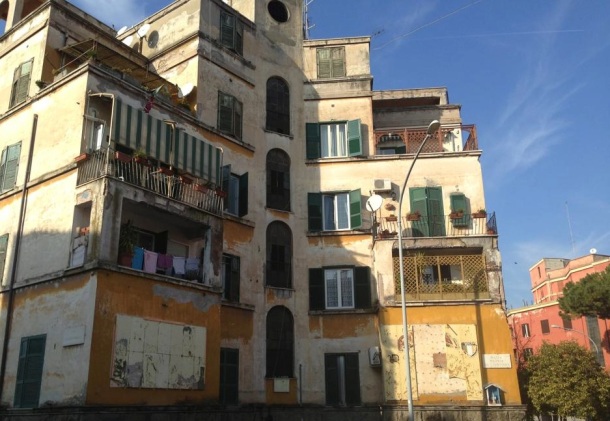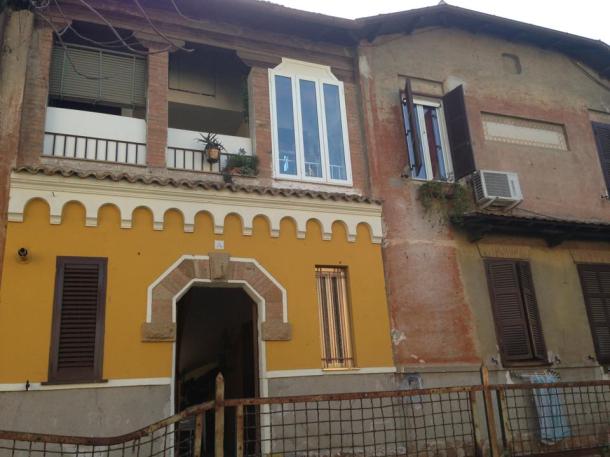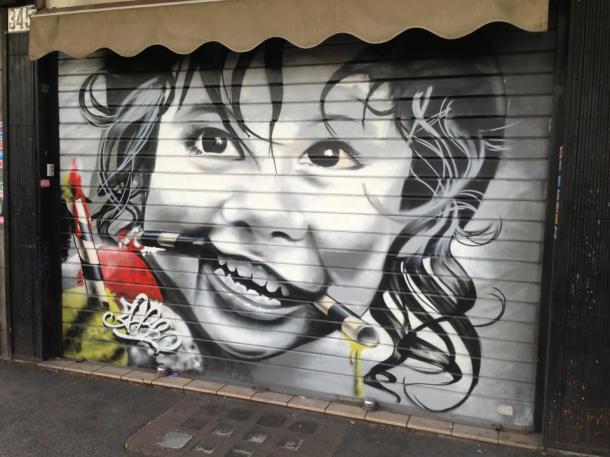
There is one place I truly miss in Rome and it’s Garbatella. I lived in this suburb for three months at the beginning of 2013 and the impact it left on me was tremendous.

This Roman suburb offers an interesting and unusual insight into the real Italian way of life and 20th century architecture. Here you’ll find washing hanging from windows, paint peeling off crumbling walls, graffiti on staircases and quaint garden city living. There is nothing flawless about Garbatella and this is what gives it an utter charm that is no doubt transfixing for any outsider.

Garbatella, Rome, founded in the 1920’s, forms part of the Ostiense district of Rome with a population of around 45,000. Today there are two very different sides to Garbatella – the older, charming side comprising apartment blocks, each grouped in a unit called a ‘lotto’ (in Italian). There are also more modern apartment blocks from the mid and late 1900’s. The older lottos (and many of the more modern ones) all have a communal garden in the centre – a design that stemmed from the Garden City Movement, a form of urban planning that began in the United Kingdom. The focus of this design was the garden – an important gathering point for families and residents in the early 1900’s.

Garbatella’s quaint garden blocks and their courtyards provide onlookers with so much colour and life. You’ll find many a winding narrow road, tiny hills and interestingly placed staircases that make for incredible perspectives. And for some reason, there is always a magnificent yellow radiance glowing from these buildings, no matter what time of day it is.

I found the area to be relatively tranquil and free of tourists – the ideal locale for a quiet walk or a cup of coffee at a pleasant bar. For me, this is the real, quaint Rome away from the rush of the city.

To get here from the Garbatella metro stop (Line B), you’ll need to walk up Circonvallazione Ostiense. As you walk, you’ll observe more modern buildings and blocks of flats. Walk in the direction of the park in Via Appia Antica. This will give you a more modern-day perspective of the suburb. Then venture along Via Ignazio Persico for a completely different, quirkier perspective. You’ll immediately see the change in architecture. Everything to the east of this road is raw, authentic and full of real Italian charm. It is no wonder that this area has been dubbed one of the hippest in Rome.



Have you been to Garbatella before? What did you enjoy about it the most? I’d love to hear from you in the comments section below.







Great post
Thanks so much 🙂